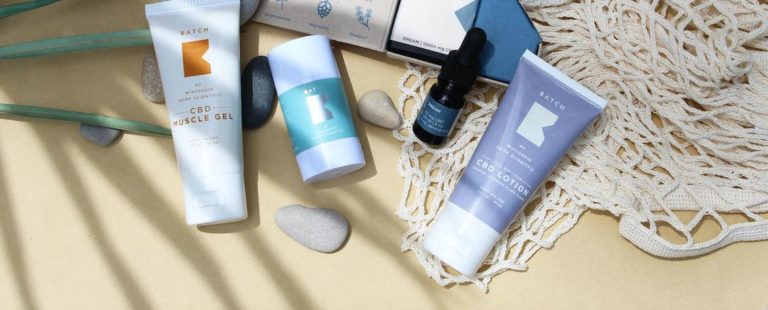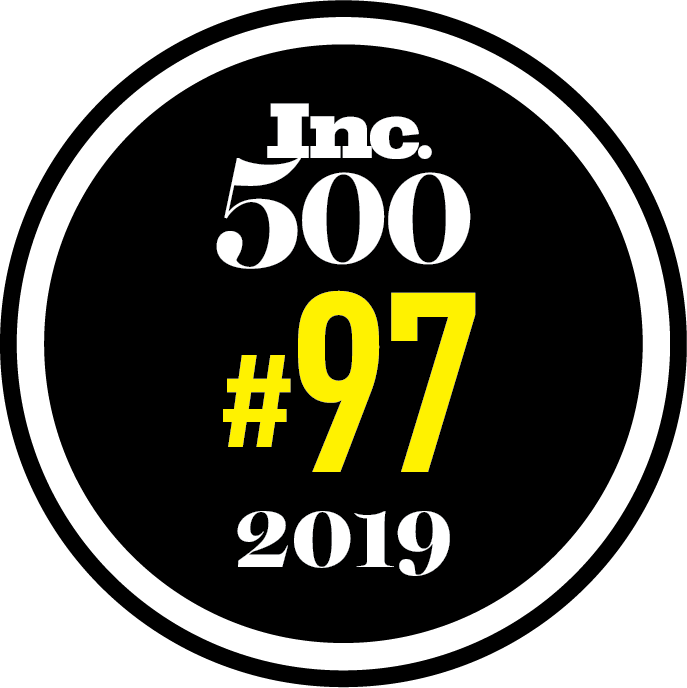Sound On! Listen to the audio version of this article (read by a real person) here:
Disclaimer: While we’ve done substantial research for this post, but we do not claim to be experts on CBD regulations or selling CBD products. We always recommend that you do additional research before making decisions for your business. Laws and regulations are subject to change.
With new technology and evolving regulations, CBD oil products are now mainstream in the consumer market. An estimated 64 million people in the US have tried CBD in the past two years.
Before you start selling your own CBD products online though, there’s a few things you should know about.
What CBD products are legal to sell? How do you comply with your eCommerce platform’s rules? How do you finance a CBD business?
Keep reading to get the answers you need to ensure you legally sell CBD and create a brand that lasts.
What is CBD?
CBD (cannabidiol) is one of more than 100 active chemical compounds found in cannabis, or marijuana plants. It doesn’t contain any of the compound THC (tetrahydrocannabinol), which is what produces the “high” associated with marijuana use.
CBD is what is thought to help alleviate symptoms like pain and anxiety. With these benefits and no effects of getting “high,” CBD is growing in everyday use among consumers.
Common CBD oil or CBD-infused products include:
- Tinctures
- Edibles
- Isolates
- Capsules
- Vaporizers
- Topical formulations
- Patches
- Pet products
Without traces of THC, CBD is considered legal to sell – in most cases.
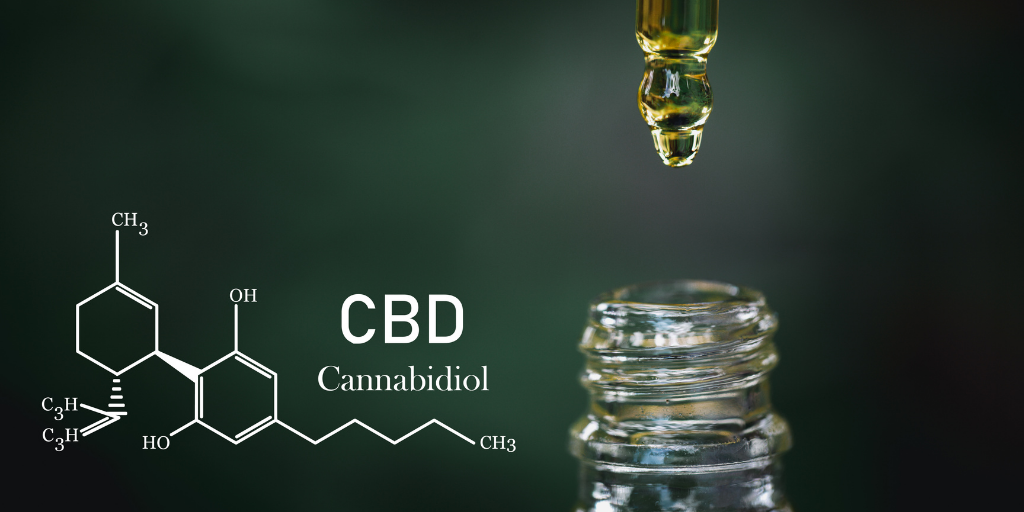
How to Comply with CBD Regulations
As CBD becomes a high-demand product, regulations around selling it are evolving. It’s your responsibility to understand the latest laws and what it means for your online business.
Federal Regulations for CBD
For decades before, federal law did not differentiate hemp (where CBD comes from) from other cannabis plants like marijuana. Therefore, CBD was still classified as illegal.
However, the recent 2018 Farm Bill changed all that. It legalized hemp production across the US, which is why you can now sell CBD products.
While this bill is a significant step for CBD sellers, there’s still serious restrictions on how hemp is produced.
- Any cannabis plant must contain less than 0.3% THC, otherwise it’s considered marijuana under federal law.
- A state’s ability to license and regulate cannabis must be approved by the Secretary of USDA.
- Producers can face violations if their actions don’t follow the laws
So, is it legal to sell CBD? Yes, CBD with less than 0.3% THC is legal nationally in the United States.
But, keep in mind that CBD is not generally legal.
Any hemp-derived products must comply with regulations set forth in the 2018 Farm Bill. Any non-compliant CBD can be considered a Schedule 1 substance under federal law, just like marijuana, heroin, and LSD.
Beyond federal law, CBD sellers also must consider that the FDA will call out brands who market products that contain cannabis in ways that violate the Federal Food Drug and Cosmetic Act (FD&C Act) and could put consumer health at risk. This means you can’t add CBD to food or label it as a dietary supplement.
The reality is that research on CBD in consumer products is in its early stages. So, the FDA is on the lookout for sellers marketing their CBD products with unproven medical claims and unknown quality.
Statewide Regulations for CBD
While legal on a national level (with restrictions), you also need to be aware of CBD laws that vary by state. Some states:
- Prohibit the sale and consumption of CBD
- Limit the types of CBD products allowed or require licensing
- Allow marijuana-produced CBD and/or only industrial hemp-produced CBD
Due to the evolving nature of CBD regulations, it’s best to connect with local representatives and keep up on statewide laws of where you sell.
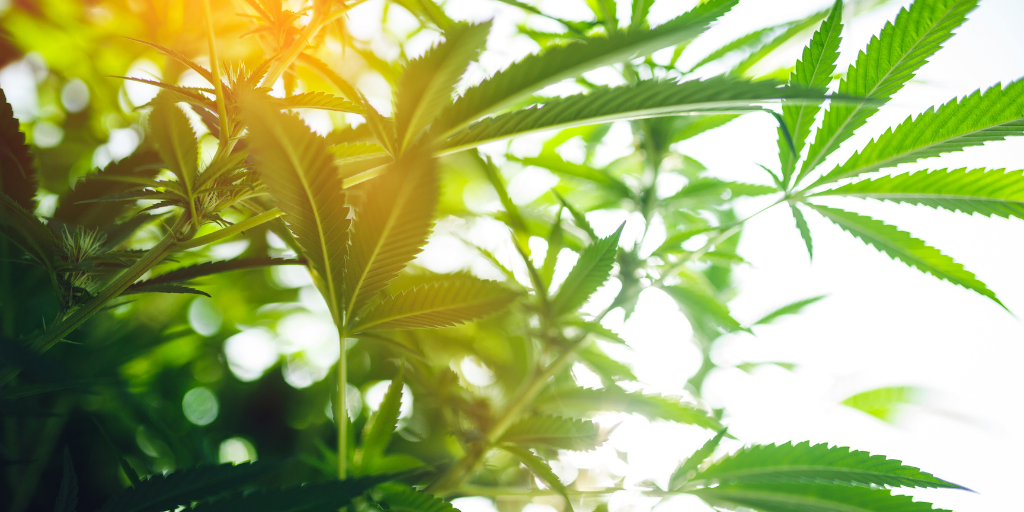
How to Source CBD Products
Finding a CBD supplier is crucial to quality products and meeting current regulations. As pointed out above, there’s still restrictions on what makes CBD legal or not.
When evaluating CBD suppliers consider the following.
High-quality CBD oil products will be:
- Derived from industrial hemp that meets federal compliance
- THC content of less than 0.3%
- Processed from the plant’s stalks and leaves
- Free of any unnecessary chemicals or contaminants (affected by the CBD extraction process)
Avoid CBD products from suppliers that:
- Derived from marijuana itself (not legal in all states in the US)
- Derived from hemp seeds, which contain very little CBD
- Have more than 0.3% THC
- Makes medical claims on their website
- Have unusually low prices
- Don’t follow federal regulations
Before looking at CBD suppliers, learn how to read a certificate of analysis (COA) for hemp-derived products. A COA will help you determine if there’s less than 0.3% THC in a CBD product.
CBD Compliance by eCommerce Platform
In addition to federal and state regulations, there’s also limitations on the platforms you can use to sell CBD online. Take a look at these top platforms and their stance on CBD products.
- Shopify – Permits only US merchants to sell topical and consumable hemp and/or hemp-derived CBD products (no marijuana-derived CBD)
- BigCommerce – Allows for hemp and hemp-derived products
- Magento – Allows CBD products
- Shift4Shop – Allows CBD products (check out their CBD guide)
- WooCommerce – Allows CBD products
- Amazon – Prohibits CBD products entirely
- eBay – Prohibits CBD products entirely
- Tophatter – Allows CBD oil
Payment Processors for CBD Stores
As a CBD seller, you will also need to work with a third-party payment processor to accept payment online. For example, Shopify does not allow CBD sellers to use Shopify Pay.
Instead, you will need to find a high-risk payment processor provider that is willing to accept the additional risk involved with products like CBD. Some examples are:
For whatever payment processor you do choose, make sure your eCommerce platform will integrate with the provider of your choice.
Shipping
When selling online, you should also look into product-based shipping rules. Since CBD product regulations vary by state, you’ll want to ensure you stay within safe shipping zones.
In terms of carriers, major providers like UPS, FedEx, and DHL will ship for you. USPS did put out this notice that US CBD sellers should be aware of.
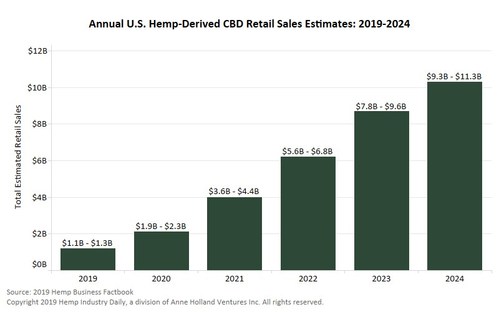
The 2019 Hemp & CBD Industry Factbook predicts that retail sales of CBD in the U.S. are expected to surpass $1 billion in 2019 – a 133% increase over 2018 sales – and may eclipse $10 billion by 2024.
How to Stand out in the Crowded CBD Market
As you build your CBD brand, it’s important to craft a brand voice and marketing strategy that stands out among tough competition. CBD is no longer a novelty item. Your customers can find it on shelves at local stores like CVS and Walgreens.
So, how do you ensure someone buys from you instead of a competitor?
Quality Products
Since CBD has seen explosive growth as an industry, there’s been more than a fair share of brazen health claims and “fake” CBD products to hit the market. These problematic products have ranged from making consumers severely ill to having no real CBD in them at all.
You won’t be able to fool customers with low quality products either. They’ll be quick to call out sellers who do and be sure to let their friends know too.
Do your due diligence when sourcing your products, both for the health of your business and customers.
Basic Marketing
At the very least, cover your basic marketing efforts. That means following SEO best practices to drive web traffic, having easy-to-use website features, and consistent email marketing. These tactics are even more important since there’s advertisement restrictions for CBD on Facebook and Google.
Interacting with Your Community
In 2020, high quality products and savvy marketing will only get you so far though.
Leading brands find creative ways to interact with their communities. They understand their buyers needs and wants, and foster authentic relationships based on that.
When products are relatively equal in quality, this is what sets you apart from other sellers.
Interacting with your community can be everything from educational content, sourcing new product ideas, influencer marketing, and in-person/virtual events.
What works to build your community will vary from brand to brand. Your decisions should be based on a deep understanding of your unique audience and meeting their needs.
Take a look at CBD seller Beam. They cater towards CrossFit athletes and the benefits of CBD for fitness and recovery. Check out Beam’s Instagram feed to understand how they connect with athletes on a personal level.
Sell CBD Wholesale
If you’re a CBD manufacturer, wholesaler, or distributor, perhaps you want to concentrate more on B2B selling rather than running your own online store and/or marketplace listings.
4 Ways to Finance Your CBD Business
Once you start selling, you’ll most likely face the challenges of financing your everyday options, especially for a product that’s still heavily regulated.
How do you ensure you have enough cash on hand to keep up with inventory demand, marketing costs, or other business expenses?
Here’s a few financing options to consider:
Credit Cards
Credit cards are a go-to for most businesses to pay for general expenses like inventory. Cash back rewards can also be a great way to earn a little extra cash to put towards other needs.
Credit cards alone though don’t realistically support your entire business operations. Low credit limits and maxed out cards can still limit sellers, especially if your business is growing faster than your credit limit will allow.
Traditional Financing
There are limited traditional financing options for startup CBD brands because of legal red tape preventing financing from bank lenders.
But, one option is called a “bridge loan”, which is a short-term loan a seller can use for immediate needs like rent, inventory, and utilities. These loans though typically have high-interest rates and require you to put up collateral, which is typically a hard asset like commercial real estate, or your home.
Even if you’re approved for a bridge loan, they can be risky for your long-term financial health. Securing a loan with personal collateral (in the event you don’t own any commercial real estate) means your business is tied to your personal assets. Any unforeseen business issue can spill over into your personal life.
Merchant Cash Advances
Since traditional financing options like loans can be limiting and risky, CBD sellers can take advantage of alternative options like merchant cash advances. They aren’t technically a loan and still give you short-term access to the capital you need to run your business.
Cash advances differ from loans in many ways. Unlike loans where the business borrows money and pays it back over time in fixed monthly payments, merchant cash advances or MCAs work differently. They are not technically debt. Instead they are a purchase of your future receivables or sales. So an MCA will purchase your future sales and collect a fixed percentage of what you sold (usually weekly or daily). So if sales go down, you pay less that day, month, or week, if they go up, you pay more. There’s usually no long approval process with cash advances, and many (including Payability) do not do credit checks. Unlike loans, MCAs never require you to put up collateral such as your house to secure the funding.
Providers like Payability offer cash advance solutions that are based on your future online sales and account health. Future sales are based on all online sales both web stores and marketplaces. Capital can be used towards large inventory purchases, marketing expenses, or other business needs. Learn more about the differences between loans and cash advances.
Check out Payability’s Instant Advance solution. With no credit checks, you can get approved for up to $250,000 in as fast as one business day. Payability will remit a fixed percentage of your online sales, making it easier to handle payments based on your real time sales.
Accelerated Daily Payments
If you sell CBD on a marketplace like Tophatter, you could also apply for Payability’s Instant Access. This solution pays you next-day, every day for all your marketplace sales. This avoids the delayed payouts of marketplaces that routinely put sellers in tight spots.
As with Instant Advance, there are no credit checks, tax documents, or complicated paperwork required. Plus, you can get approved for financing in 24 hours based on your eCommerce account health and sales performance. As long as you are abiding by the marketplace or shopping cart’s terms and conditions for CBD, Payability could be a funding option for your CBD business. Minimum requirements apply for both Instant Access and Instant Advance. These funding options are not available to brand new businesses.
Venture Capital (VC)
Last year, there was about $2.62 billion in VC investment in cannabis-related companies.
While funding can be a great fit for some brands, it does come at a cost. You give up a part of your business. There’s pressure for constant and significant top-line growth. And, you can lose the ability to make the best long-term decisions for your company.
Before taking on VC money, read more about the pros and cons of venture capital funding and its effect on direct-to-consumer (DTC) brands over the past two decades.
The Promising Future for CBD Brands
Experts project the US CBD market will grow to $89 billion by 2026, and it’s relatively in its infancy.
Getting in the market now and understanding how to overcome its challenges will ensure you build a CBD brand that lasts. For more on how to sell CBD and what types of consumers buys CBD check out The CBD Insider 2021 US CBD Consumer Report.
